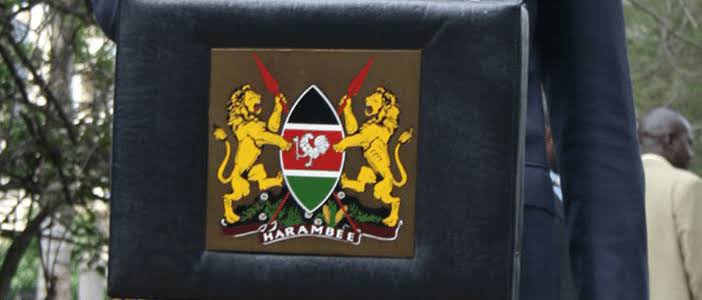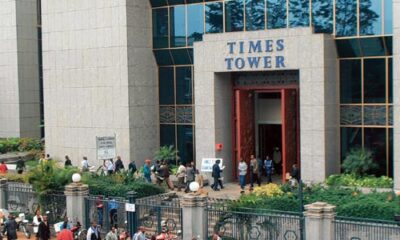It’s a budget of pain for liquor makers, retirees, importers, and online businesses to prop up the Sh1.6 trillion tax burden in the new financial year.
Also on the hit list are electric accumulators, helicopters, tractors, clean cooking stoves and cooking gas after the government had a change of heart and introduced a 14 per cent value added tax (VAT) on liquefied petroleum gas (LPG) and other items.
Companies, including those making losses, have not been spared either.
“On one hand, the proposal reduces the beers which are subject to excise duty while increasing the spirits subject to excise duty. Given that the excise duty on spirits is higher, the changes will increase the excise duty collections,” audit firm KPMG says in its assessment of the implications of the new measures.
The National Treasury has also proposed to subject the income of Home Ownership Savings Plans (HOSPs) to tax.
This proposal will go after financial institutions, fund managers, investment banks and building societies that have homeownership deposits.
The implication will be to reduce income available for distribution to depositors as interest, undermining their ability to purchase homes.
With a budget deficit of Sh835 billion, Treasury Cabinet Secretary Ukur Yatani had very little good news for millions of Kenyans rendered jobless by the Covid-19 pandemic.
Treasury will also now tax bonuses, overtime and retirement benefits.
From now, retirees will pay taxes on income from the National Social Security Fund (NSSF).
This will reduce benefits available to pensioners.
Treasury has also disallowed the expenses for companies seeking to list on the bourse.
This is expected to increase the tax bill of firms looking to list or float shares at the Nairobi Securities Exchange (NSE).
Club membership subscriptions and fees to clubs and trade associations will also be taxed.
Mr Yatani has also slapped a 1.5 per cent digital service tax on online transactions as the government moves to get a piece of the action in the growing e-commerce, which has seen a greater uptake due to the current stay-at-home restrictions.
“With the fast advancement in technology, many business transactions are increasingly being carried out through digital platforms,” the CS said.
This tax is expected to hit the youth most, many of whom have resorted to online businesses.
“Due to the nature of the transactions, it is sometimes difficult to tax the income derived through such platforms effectively. It is therefore necessary to provide a framework that will facilitate taxation of such income,” the minister said in his budget statement yesterday.
The Treasury also handed a double blow to loss-making companies. Such firms were exempted from taxes.
He said some companies continue to declare losses year after year, thus not contributing to the exchequer in terms of tax revenue.
“These companies enjoy facilities like infrastructure, whose cost of construction and maintenance is serviced by the government through revenues contributed by patriotic taxpayers,” he said.
Mr Yatani proposes to introduce a minimum tax that will be payable by companies at one per cent of their gross turnover.
It will be a bad financial year for companies given that they have already declared profit warnings due to the Covid-19 pandemic.
The CS said the new tax measures would generate about Sh38.9 billion.
He also proposed to introduce VAT on previously exempted concessions on specialised equipment for the development and generating solar and wind energy, and inputs or raw materials supplied to solar equipment manufacturers.
The Treasury chief has reintroduced VAT on plant, machinery and equipment used in the construction of plastic recycling plants.
He said manufacturing is a major pillar in the “Big Four” agenda and that the government intends to increase contribution of the sector to the gross domestic product from about eight to 15 per cent by 2022.
Treasury says it has proposed at the regional level measures aimed at promoting local manufacturing. The minister added that the Treasury would ensure locally manufactured products are competitive.
The customs measures will be effective from July 1.
To protect local manufacturers of iron and steel products from competition, the Treasury retained the rate of import duty at 35 per cent for another financial year.
The rate of import duty on paper and paperboard products has also been maintained at 25 per cent to protect local manufacturers.
Manufacturers of diapers are winners in this budget.
“Inputs for making baby diapers will be imported duty-free under the East African Community Duty Remission Scheme,” he said.
Inputs for producing new clothing and apparel, including fashion and design, will also be imported duty-free.
Telecommunication innovators are the other winners in Mr Yatani’s maiden budget statement.
Inputs for the assembly or manufacture of mobile phones will be shipped into the country duty-free.
The local leather and footwear industry also has something to smile about. Import duty has been retained at 25 per cent to discourage cheap imports, he said.
To protect local producers of electrical parts and accessories, the government has increased the rate of import duty to 35 from 25 per cent on such products.
The EAC has also struck a deal granting duty remission on raw materials and inputs for the manufacture of masks, sanitiser, ventilators, overalls, face shields and other Covid-19 personal protective equipment.
“This will enhance measures aimed at containing the pandemic in addition to encouraging the production of such items locally,” Mr Yatani said.
The EAC also exempted from import duty supplies for diagnosis, prevention, treatment and management of epidemics, pandemics and health hazards.
Landlords making less than Sh15 million annually will surrender 10 per cent of their income to the government. The Treasury raised the ceiling from Sh10 million in a bid to encourage landlords to pay taxes.
Kenya introduced a simplified monthly rental income tax in 2016 to enhance tax compliance among landlords.
Mr Yatani said the Sh10 million per annum threshold has had a positive impact on tax compliance, peompting the decision to raise the threshold to Sh15 million.
Farmers will have something to smile about after the government exempted maize or corn seeds from VAT.
Ambulance services have been exempted from VAT. This is in addition to medical, nursing and dental services which are exempt from VAT.
To encourage tax cheats to come out of hiding, Treasury has introduced a voluntary disclosure programme.
This, Mr Yatani said, will allow Kenyans who in the last five years may have inadvertently made omissions in their tax returns to voluntarily disclose such omission.
“The programme will run for three years. In order to encourage uptake of this plan, I propose to grant relief for penalties and interest in respect of what has been disclosed after payment of the principal tax,” he said.
Other winners are the Kenya Defence Forces (KDF) and the National Police Service, which will now no longer pay import declaration fees and the railway development levy.
“These charges reduce budgetary allocations of these institutions,” the CS added.
The exemption will apply to all goods, including materials, supplies, equipment, machines and vehicles imported for official use by security agencies.
In preparation to start collecting levies on new roads, the government has amended the Public Roads Toll Act.
It enables individuals to enter into an agreement with the government to collect toll on roads built and managed under such deals.
Mr Yatani has also introduced a 2.5 per cent additional duty in respect of goods entered for home use from export processing zone enterprises.
It is in addition to custom duties applicable to the removal of products from the EPZs for home use.
Kenya will spend Sh2.7 trillion in the new financial year.
However, this number does not capture in full debt repayments.
If these are factored in, the budget expands to Sh3.2 trillion.
Treasury always understates the actual size of the budget by leaving out debt redemptions on the grounds that they are not an actual cost as the loans are rolled over.
The government instead only accounts for interest on the loans.
In summary, the government will spend Sh1.82 trillion to run its operations.
This will include Sh1.1 trillion for recurrent expenditure, while the development budget for the Executive has been allocated Sh632.8 billion.
The Judiciary will get Sh18 billion. From this, the recurrent budget will receive Sh15.3 billion while the remaining is expected to go to development.
Parliament will receive Sh37.7 billion, with salaries taking Sh35.7 billion, while development will receive the remaining Sh2 billion.


 Business1 week ago
Business1 week ago
 News7 days ago
News7 days ago
 News2 weeks ago
News2 weeks ago
 News1 week ago
News1 week ago
 News1 week ago
News1 week ago
 Business1 day ago
Business1 day ago
 News1 week ago
News1 week ago
 Investigations1 week ago
Investigations1 week ago












